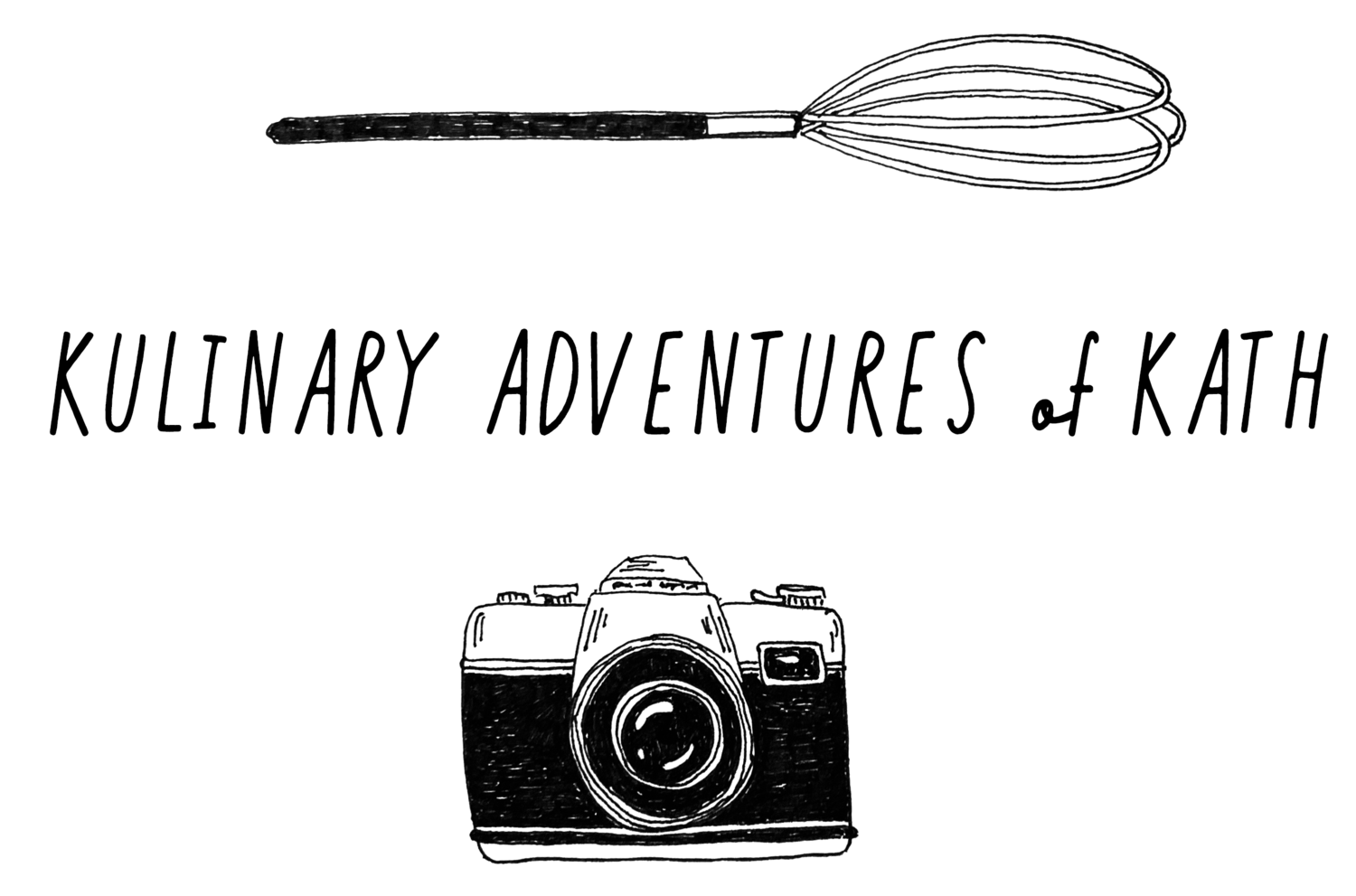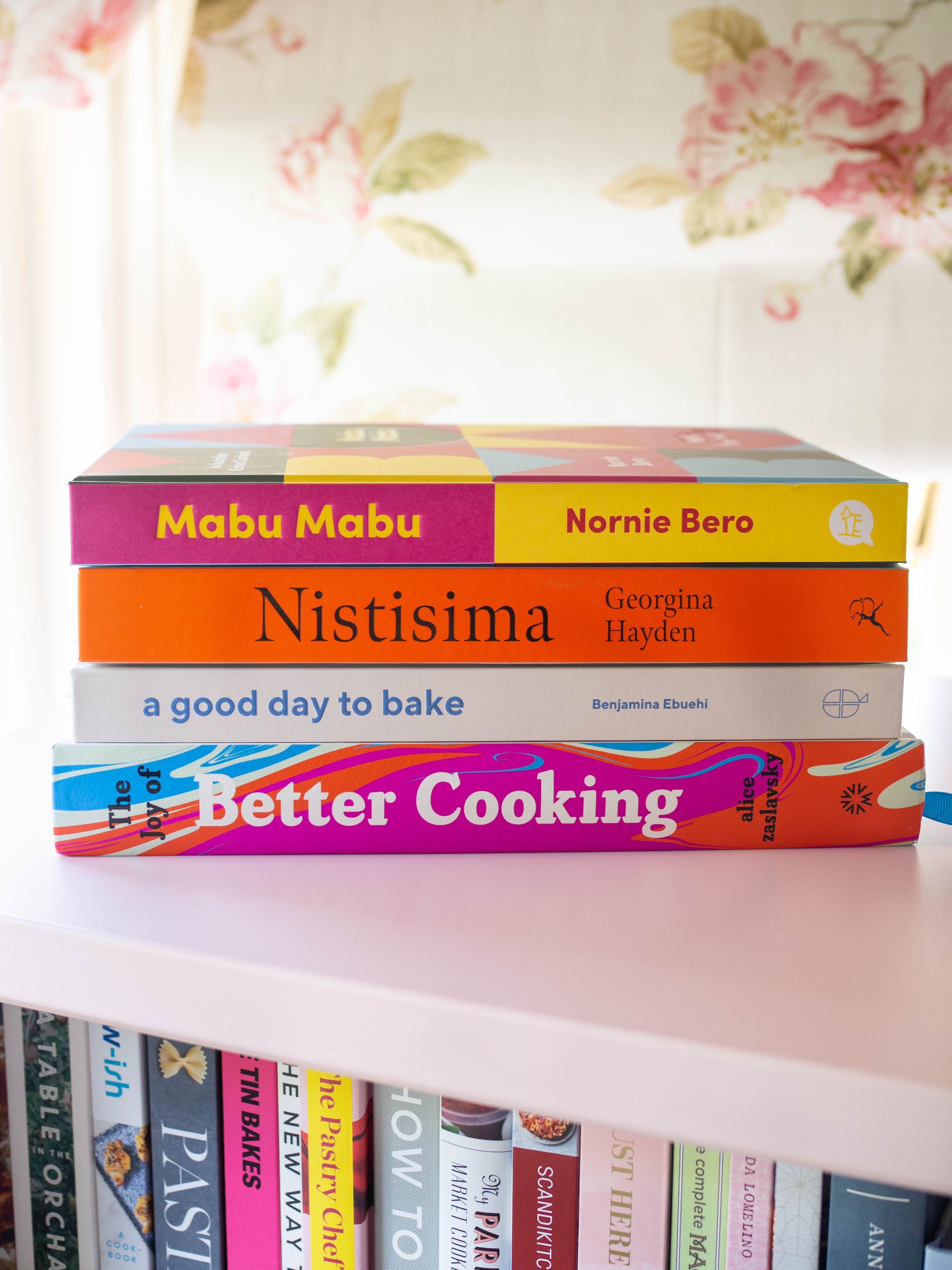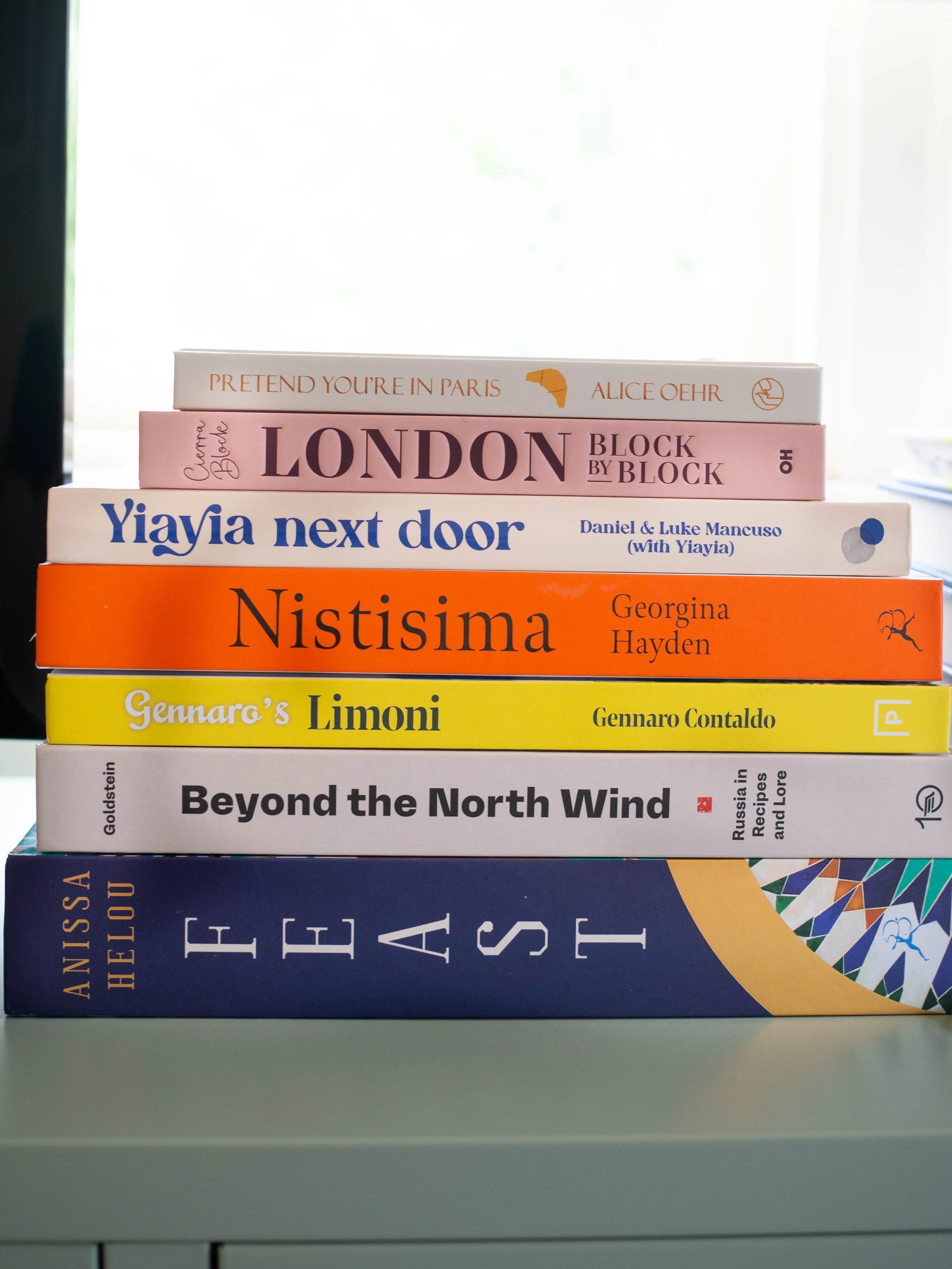Fortunately for people like me (and maybe you too if you are reading this?!), 2022 was another great year for cookbooks. I have created a slightly more succinct list this time to round out what I thought were the best cookbooks of 2022. This list is by no means exhaustive, and is very much based on my personal opinion right now.
I toyed with adding more books to the list, but if I didn’t give myself a limit I’d never finish writing it.
So below are my top four. A diverse selection, but all ones I think would make great additions to your cookbook shelf (or shelves… let’s be honest here!).
As always the links to the books are not sponsored, just for your reference. Links to books on Booktopia removed 15/07/2024.
Let me know in the comments what you think of my selections, and what books would be on your personal list for the best books of 2022?
1. The Joy of Better Cooking by Alice Zaslavsky - How could I not include this book on this list? It delights and surprises in the best possible way, and maybe one of the few books I genuinely think would delight the majority of people regardless of their cooking abilities. It’s bright, colourful and joyful - just like Alice seems herself! So it really feels like you are getting Alice in your kitchen explaining things and encouraging you to be an enthusiastic cook and eater.
2. Mabu Mabu by Nornie Bero - When I first mentioned this book on my blog, I said after reading this book Nornie’s restaurant was on my list of placed to go whenever I next went to Melbourne. I ended up going to Melbourne in December of 2022 and unfortunately a migraine attack thwarted my attempt to eat there (as so often happens). So now it’s still on my list for next time which is disapointing, but ‘Mabu Mabu’ the book can certainly keep me company until then. It looks like lots from the restaurant is in the book, and coupled with the really informative ‘The Native Pantry’ section which helpfully explains many Indigenous ingredients and the list of where such ingredients may be found, ‘Mabu Mabu’ really gives a great experience of what (I imagine) eating at Nornie’s restaurant would be like. I also really enjoy the colourful design of the book and the images are glorious as well. This is definitely a cookbook for every Australian kitchen.
3. A Good Day to Bake by Benjamina Ebeuhi - I know I’ve sung Benjamina’s praises for this book already, but I really do love it. I am still so enjoying the use of flavour in this book and I really just love that it stands out from many other baking books because of that. Sometimes when I get a new book that is just about baking, I feel it gives me a sense of de ja vu to many other baking books I already own or have seen. ‘A Good Day to Bake’ doesn’t do that at all (even when I already own Benjamina’s first book) and it’s just so refreshing to see something a bit different, a bit interesting, yet not overly complex or intimidating. This book has a really calm vibe and it, along with the lovely photography, makes me lose time wandering through the book and contemplating what I could bake next.
4. Nistisima by Georgina Hayden - I think only Georgina could make me like a book essentially about vegan food, and it be so good, I would have to include it on this list. Georgina’s enthusiasm for food is infectious and the research behind this book really makes it shine. This book isn’t just about vegan cooking for the sake of it, but documents the recipes and traditions from many countries when those following the Orthodox Church observe much time during the year where they fast and abstain from foods using animal products (thus they are eating vegan). I found this perspective a really interesting way to view a particular diet, as to me, it looks like those engaged in this form of eating enjoy everything, just not all at once, so their diet would probably end up quite balanced overall rather than constantly restrictive. And based on the recipes in this book the potentially restrictive nature of eating nistisima food (fasting foods) is not obvious at all. If you saw the recipes without knowing the context of the book, I doubt it would be obvious at first glance that it was a vegan book. As Georgina says in her introduction, this book isn’t a religious or diet book, and she’s not interested in telling anyone how to live or eat - “this book is for everyone…Why and how you use this book is up to you.”







